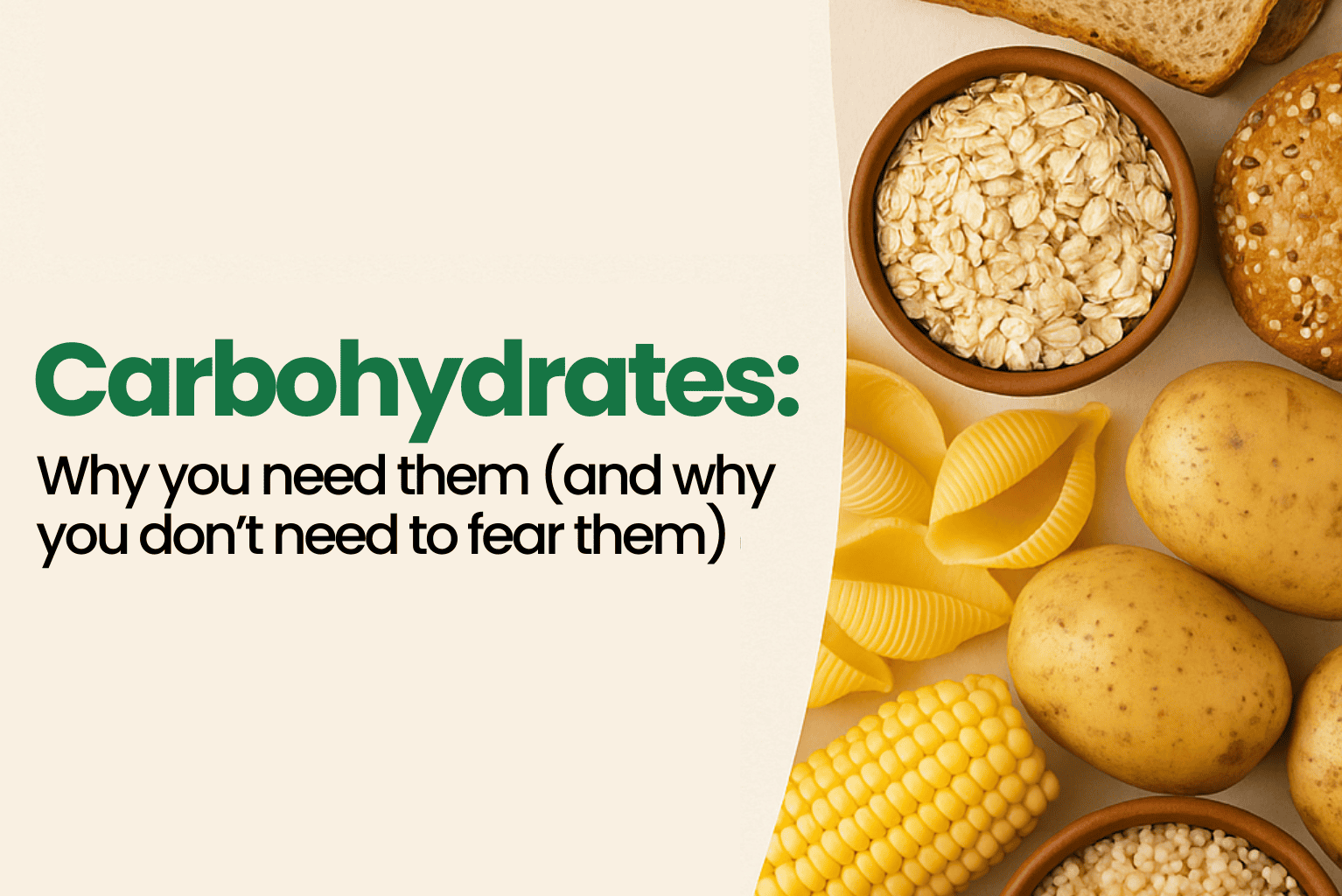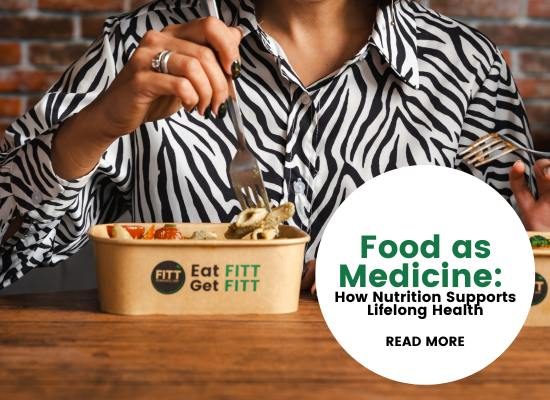Carbohydrates: Why You Need Them
(and Why You Don’t Need to Fear Them)

From: FITT Meals
Nutritionist - Helen Conway
Carbohydrates have become one of the most misunderstood nutrients in recent years. With the rise of low-carb diets and social media trends pushing carb avoidance, many people are left confused, or even afraid, to include carbohydrates in their daily routine.
In reality, carbs are far from the enemy. They’re your body’s main source of fuel and play a vital role in supporting your brain, muscles, and overall metabolism.
Let’s explain why carbs are a vital part of a healthy, balanced diet.
What Are Carbohydrates?
Carbohydrates are one of the three main macronutrients (alongside protein and fat). Your body breaks them down into glucose (a single sugar molecule), which it uses for energy.
Carbs are found in many foods including oats, rice, bread, cereals, fruit, legumes and even milk (in the form of lactose). They also come in less nutritious forms like sugary snacks, and soft drinks.
To understand how carbs affect your health, it’s helpful to know the difference between refined, whole, and fibre-rich carbohydrates.
Not All Carbs Are Equal
Refined carbohydrates like white bread, pastries, sugary cereals, and ultra-processed foods and drinks offer little fibre or nutritional value, and are broken down quickly in the body. This rapid breakdown can lead to undesirable blood sugar spikes followed by crashes, leaving you hungry again soon after.
Complex carbohydrates, on the other hand, are found in foods like whole grains, fruit, vegetables, and legumes. These offer fibre, vitamins, minerals, and antioxidants, all of which are essential for long-term health.
Why Low-Carb Diets May Backfire
Low-carb diets might lead to short-term weight loss for some, but they can come with downsides. Cutting carbs too drastically often means you’re also cutting back on fibre, as well as important vitamins and minerals found in carb-rich plant foods. Over time, this can affect your gut health, digestion, and overall nutrient intake.
While protein and fat have their place, they shouldn’t displace colourful, fibre-packed carbs that feed your microbiome, keep you satisfied, and help you stay energised.

Carbs and Exercise
If you’re active, carbohydrates are your body’s preferred fuel, especially during moderate to high-intensity workouts. They’re stored in your muscles and liver as glycogen, which is a readily available form of energy that your body uses during exercise. Without enough carbohydrate to keep these stores topped up, you may feel sluggish, struggle to perform at your best, and recover more slowly.
After exercise, carbs play a key role in replenishing glycogen and supporting muscle recovery. Rather than avoiding them, it’s smarter to choose high quality carb sources like whole grains and time them around your workouts to get the most benefit.
That said, the exact approach depends on the type and intensity of your activity. For example, if you’re fueling for intense physical activity or an endurance event, you may need to adjust your fibre intake beforehand, but that’s a whole other topic!
So, How Much Do You Need?
For most people, carbohydrates should make up around 45–65% of daily calories. That doesn’t mean loading your plate with bread and pasta at the expense of other nutrients, it means including balanced portions of smart carb sources like oats, potato, brown rice, whole grain pasta, quinoa, and fruit as part of a well-rounded meal. That’s not to say you can’t enjoy white or refined carbohydrates occasionally, but it’s best to prioritise whole grain options where possible.
How FITT Meals Supports Smart Carb Choices
At FITT Meals, our meals are thoughtfully designed to be macro-balanced with healthy portions of protein, fat, and quality carbohydrates. While not every dish follows the same nutritional breakdown, our overall approach is guided by international nutrition standards to help support your health, performance, and long-term goals.
You’ll find complex carbohydrate sources like legumes, brown rice and pasta, whole grain bread, root vegetables, and other fibre-rich ingredients featured across our menu
That said, we also include select dishes that stay true to their authentic recipes, so if you’re not a fan of brown varieties of carbohydrates, you’ll still find options that suit your preferences without compromising on nutrition.
Bottom Line
It’s not about cutting carbs, it’s about choosing the right kinds, in the right amounts. When you focus on fibre-rich, minimally processed sources and eat in line with your needs, carbs can support your energy, recovery, and long-term health.
Looking for meals that strike the right balance? Explore our nutritionist-approved FITT Meals plans which have been developed to suit your lifestyle, fuel your workouts, and keep you on track.





